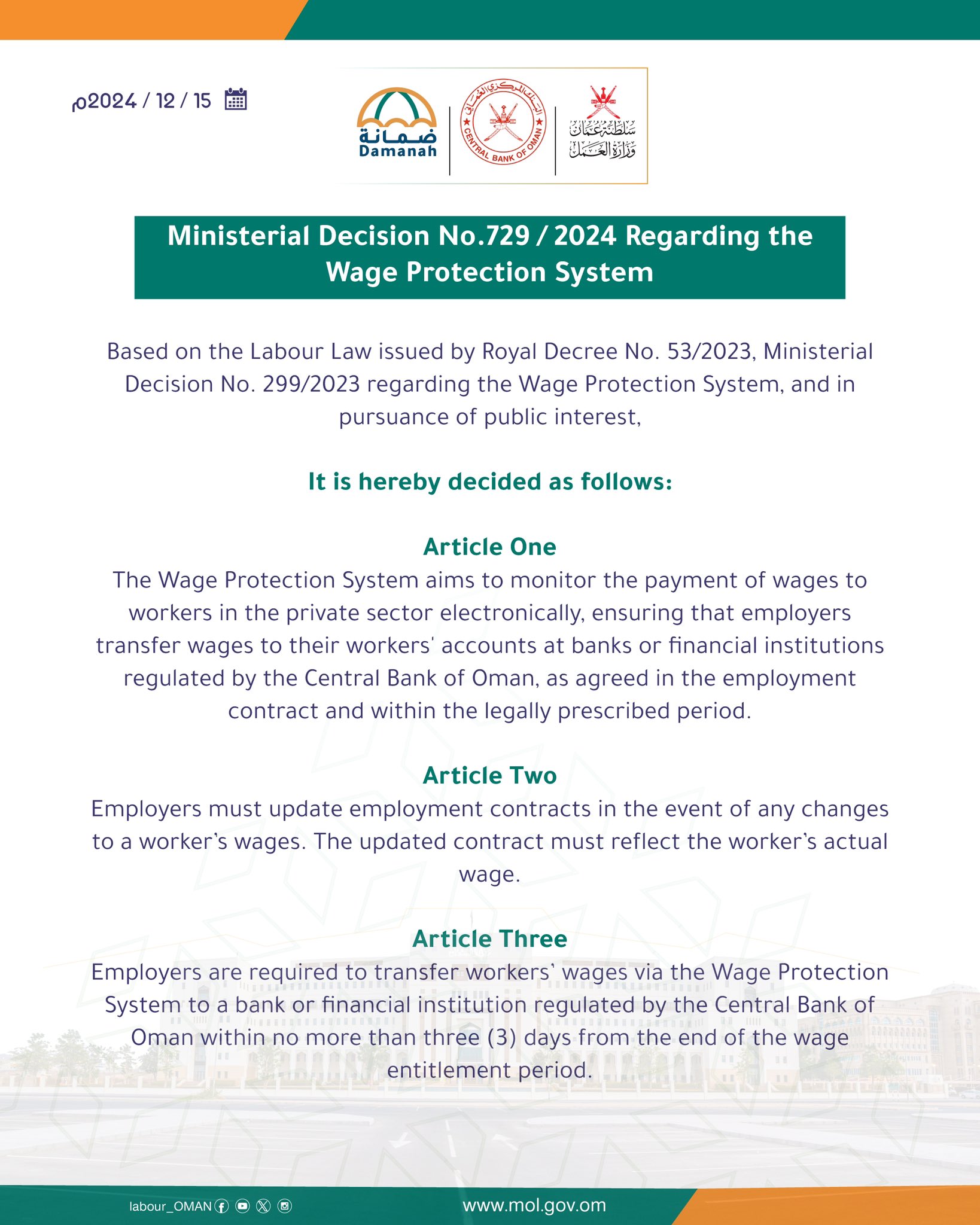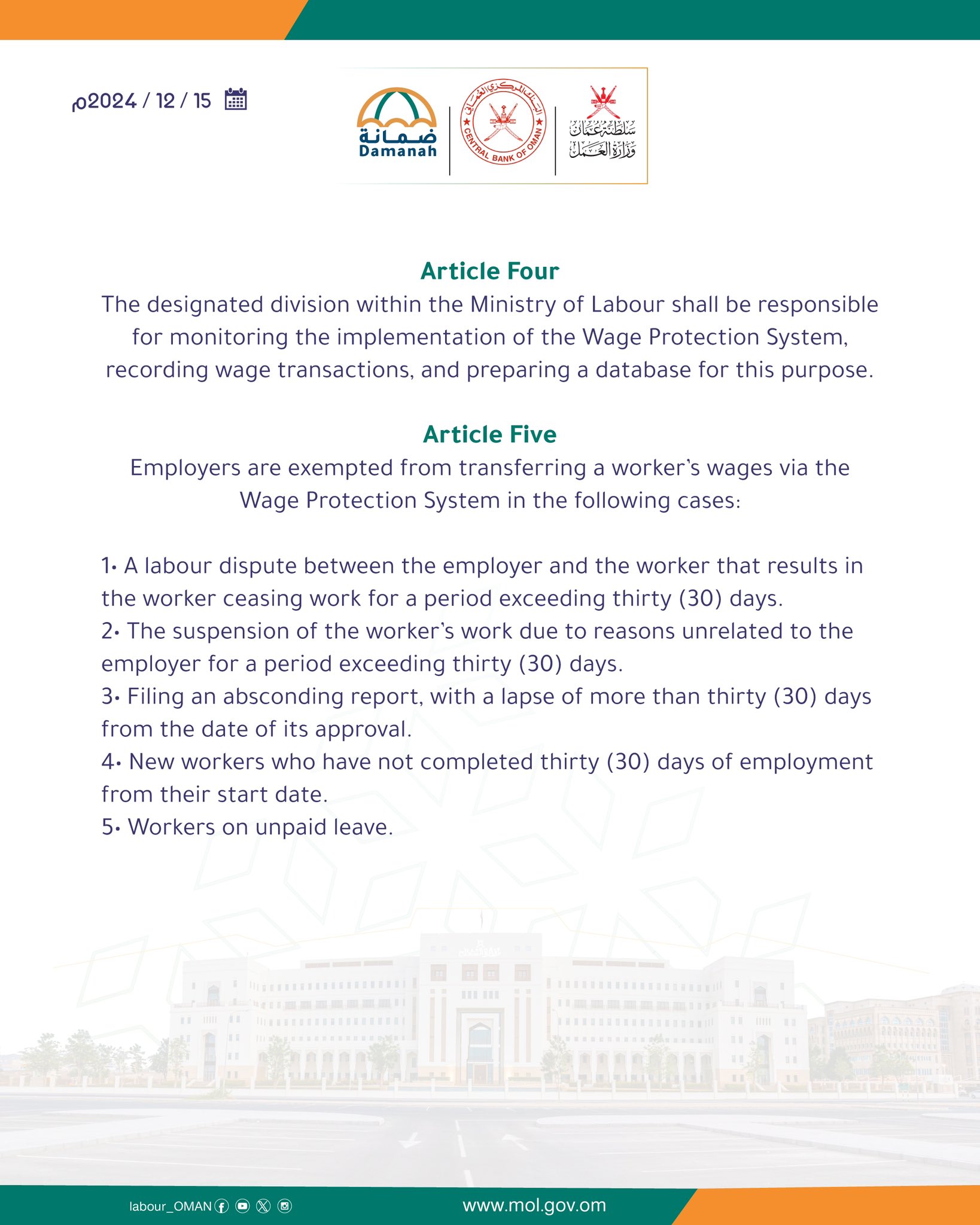
Oman announces new rules for private sector wage protection
Compensation & BenefitsEmployee Relations#EmploymentLaw
To ensure timely and transparent wage payments for the private sector workforce, the Ministry of Labour (MoL), Oman has introduced a new Wage Protection System (WPS), a decision which cancels Ministerial Decision No. 299/2023 and any conflicting rules.
The new rules as stated in the Ministerial Decision No. 729/2024, is in alignment with the Labour Law issued by Royal Decree No. 53/2023. This new system, which will be effective once published in the Official Gazette, ensures Oman’s commitment to protecting workers' rights and ensuring fair wage practices in the private sector. This will include:
- The e-WPS will ensure effective tracking of wage payments by requiring private employers to transfer salaries to employees’s bank accounts as regulated by the Central Bank of Oman. Also, ensure that all the payments are as per the employment contact terms and within legally defined timelines.
- The system also necessitates all private sector employers to regularly update their worker’s employment contract as soon as the employees’ salary is revised, so that the system reflects accurate wages for all their employees.
- To ensure the wage payments are timely, the employers have to mandatorily transfer all the payments within three days of salary entitlement as mentioned in their workers employment contract.
- The Ministry will also set up a designated department for monitoring record transactions, and maintaining the database, as well as ensuring this new system is implemented effectively.
The Ministry has also mentioned certain exceptions for private sector employers, such as:
- Employers are exempted from using e-WPS in casce of any labour disputes that results in work cessation for over 30 days
- If the work has been suspended beyond 30 days for a reason not related to the employer, then they are exempted too.
- If there are employee absconding reports which were submitted but not approved within 30 days, then employer is exempted.
- In case of newly hired workers, who are yet to complete 30 days of work, the employer is exempted in such cases too.
- If the workers are on unpaid leave, then the employer is not accountable for wage payment for those days, and exempted from using e-WPS.
In case the employers need additional exemptions, then a committee of the Ministry will review their requests that don’t fall under Article Five.


You may also like:
- Mass Layoffs at Oman Air? Here’s what officials have to say
- The real effects of a DEI rollback
- What does having women on the board really mean?
- Dr Muhammad Laghari shares key pillars of HCM agenda driving people success
The private sector employers who violate these new rules, will face penalties, such as warnings, suspension of work permit services, or fines of OMR 50 per worker, which will double for repeated violations.
Oman is consistently improving efforts to enhance the system for workers' rights. Recently, the Social Protection Fund Oman mandated all employers to verify and update their expatriate workers' data through a new SPF e-Portal to ensure workers receive error-free benefits. Additionally, full-time Omani and non-Omani workers in both the private and public sectors can avail themselves of the enhanced social insurance maternity benefits scheme, including a paternity leave allowance—a step to increase women's workforce participation. The expatriate population in the Sultanate has now crossed 1.8 million, surpassing the Omani workforce.









